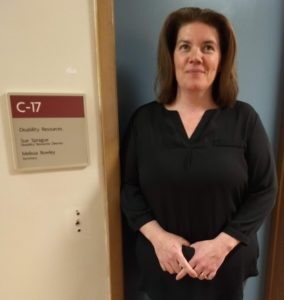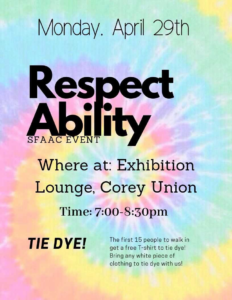
By Sue Sprague, Director of Disability Resources
Get ready for a change in scenery! Disability Resources is moving around the corner in Van Hoesen Hall. It won’t take long to get used to our new office and location just down the hall and around the corner in room C-17, part of the old UPD suite.
Along with our new office comes our new secretary, Melissa Rowley, an experienced office administrator, leading the way in teaching students and faculty about AccessCortland and assisting one and all with answers to questions and offering support when needed.
As we finish the final touches on our new office space, Melissa and I will be excited to welcome you to stop by and visit. One of the exciting additions to our office will be areas for students to post important messages, share disability pride, and just relax.
Some things won’t change. We will continue our emphasis on sharing information, listening to students living disabilities, and offering support to find resources and solutions. We also will be keeping the same phone number since its change last year: 607-753-2967.
Be ready to see us in Van Hoesen C-17 when you return in August. We will be happy to show you around our new space!
A Special Congratulations to Seniors and Graduates! All the best with your future plans!
